In a year of incredible achievements for the movement and general feminist kick-assery, a wave of young women has demonstrated exactly why the future looks bright for gender equality. It’s impossible to list them all, but here are a few of the trailblazers.
Malala Yousafzai
Malala Yousafzai won the Nobel peace prize, becoming the youngest recipient at 17 and sending the message to girls everywhere that they have the power to change the world.
Meltem Avcil
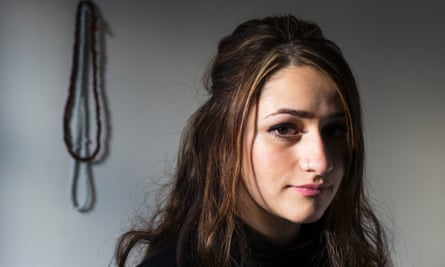
She has campaigned tirelessly to shine a light on the treatment of women and girls seeking asylum. This year, Avcil saw her efforts pay off, as Labour pledged to end the detention of pregnant women and trafficking victims, and to launch an investigation into the treatment of detainees at Yarl’s Wood immigration detention centre.
Together with a team of young women from youth charity Integrate Bristol, the activists successfully persuaded Michael Gove to contact every school about female genital mutilation (FGM), as well as collecting 250,000 petition signatures and winning the backing of Ban Ki-moon, UN secretary general. Hassan’s mum grounded her for telling the prime minister to “grow a pair” on national TV, but it was a small price for resounding success.
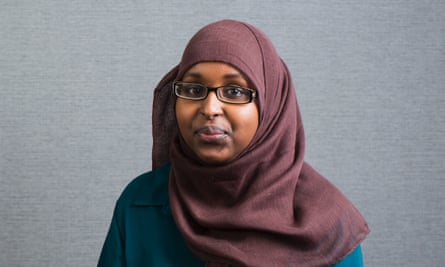
Megan Beech
After exploding onto the feminist spoken-word scene, student Beech hit the headlines this year with the publication of her first book of poetry, entitled When I Grow Up I Want to be Mary Beard. With poems such as 99 Problems tackling sexism in popular culture, Beech uses poetry to explore and disseminate feminist ideas to a wide audience.
June Eric-Udorie
June is a passionate feminist activist who sits on Plan UK’s youth advisory panel, writes for Girls’ Globe, takes action to empower girls within her community and also campaigns against FGM. She became a powerful new voice in the blogosphere, advocating and spreading the word on issues from banter to victim blaming as well as flying the flag for wider use of the word vagina.
Yas Necati
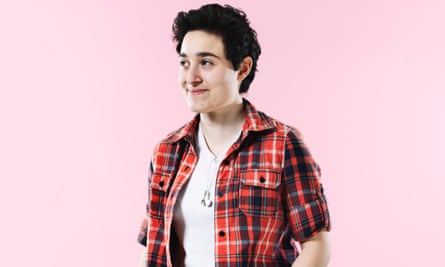
Necati campaigned for No More Page 3, the Campaign4Consent, #SREnow and #PassItOn, blogged prolifically and written for Powered By Girl about intersectional feminist issues. She has given talks to other young people about becoming a feminist campaigner, spoken at universities, taken part in panel debates, organised protests and championed consent on the BBC news. Just a quiet year then!
Maggie Cole
She may be only seven years old, but Maggie Cole proved herself a formidable feminist force to be reckoned with this year, persuading Tesco to change signs in its stores that referred to superhero merchandise as “for a boy”.
#PassItOn Campaigners
Supported by Everyday Sexism, a group of inspiring young women came together to launch #PassItOn, a campaign by and for young people aimed at tackling misconceptions about sexual consent. Using Tumblr, Facebook, and other social media platforms, they’re empowering their peers to unleash their creativity and spread positive messages about healthy relationships.
Girlguiding UK
After proudly flying the feminist flag in 2013, members of Girlguiding UK took direct action by launching Girls Matter, a powerful campaign lobbying politicians to commit to eight concrete actions for gender equality.
Student feminists
Across the country, students decisively rose up to show their determination to tackle gender inequality. The National Union of Students has thrown itself into fighting to reclaim campuses from sexual violence, while feminist societies have sprung up and thrived and student government has taken action on sexual harassment. Student bloggers have kept attention and pressure on the importance of campus consent. Students also led a focus on intersectional feminism, from new NUS resources to efforts to tackle the intersection of sexism with homophobia, transphobia and racism on campus.
Purple Drum campaigners
Purple Drum, another brilliant campaign, was set up by the young women’s team at Imkaan, a black feminist organisation dedicated to addressing violence against women and girls. They launched a new series of workshops where young women can use their creativity to challenge inequality in popular culture.
Powered By Girl team
Beautifully named, beautifully executed, Powered By Girl is run by girls who aim to “interrupt media sexism in all its racist, classist, homophobic forms with humour, satire, and the online tools at our disposal”. The results should provide ample inspiration for any aspiring young feminist campaigner.
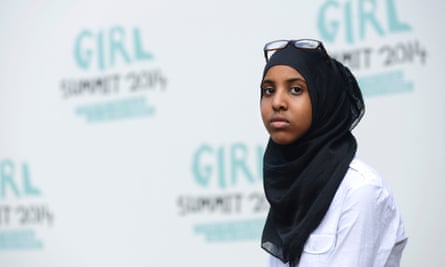
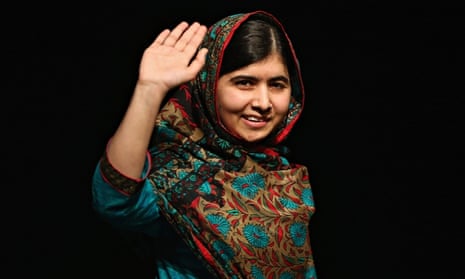
Comments (…)
Sign in or create your Guardian account to join the discussion